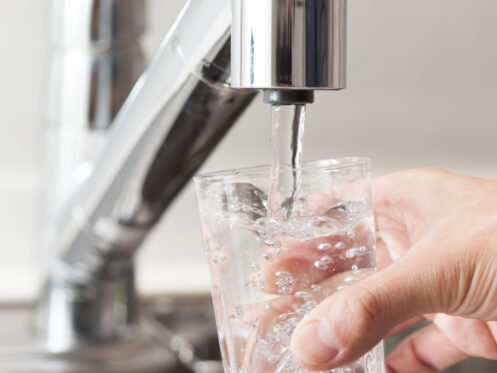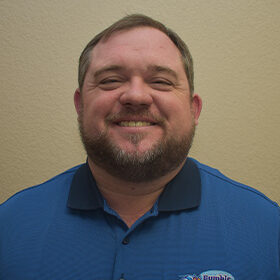You might not think much about the water coming out of your taps, but hard water could be to blame if it’s leaving behind stubborn stains, clogged faucets, or dry, itchy skin. It’s not dangerous to your health, but it can quietly damage your plumbing, appliances, and even your clothes over time. The longer it goes unchecked, the more expensive it can be to fix.
Many homeowners don’t realize they have hard water until they start noticing a buildup in their sinks or higher utility bills from inefficient appliances. Catching the signs early can help you prevent long-term damage and unnecessary costs. Bumble Breeze in Las Vegas, NV, has helped many homeowners recognize hard water issues before they turn into bigger problems, saving them time, money, and frustration.
Stubborn Stains on Stinks and Fixtures
If you’ve ever noticed white, chalky stains around your faucets or cloudy spots on your glass shower doors, hard water could be the culprit. These marks, often called limescale, are left behind when water evaporates, and minerals like calcium and magnesium get stuck to surfaces. They may start out as small, faint spots, but over time, they build up and become harder to remove.
Your kitchen and bathroom sinks are prime spots for this kind of staining, especially around the edges of faucets where water drips and dries repeatedly. Even if you scrub them away, they tend to come back quickly unless the water itself is treated. If your dishes look dull or come out of the dishwasher with a white film, it’s another sign that hard water is leaving mineral deposits behind.
While these stains don’t damage fixtures right away, they can cause them to wear out faster. The buildup can make it harder for water to flow properly through faucets, leading to corrosion over time. If your once-shiny bathroom fixtures look dull or feel rough, hard water may be to blame.
Weak Water Pressure and Clogged Pipes
If your showerhead isn’t spraying as strongly as it used to or your sink takes longer to fill, mineral buildup from hard water could be affecting your plumbing. When water is filled with minerals, they don’t just settle on surfaces; they also collect inside your pipes. Over time, this buildup narrows the space where water can flow, reducing pressure and making everyday tasks more frustrating.
It’s not just older homes that deal with this problem; even newer plumbing can experience clogs from hard water deposits. The first signs are usually minor—maybe your shower feels a little weaker, or your washing machine takes a bit longer to fill. But if left unchecked, the buildup can become severe enough to block pipes completely, leading to expensive repairs.
Another place where you may notice restricted flow is in your appliances. Dishwashers, washing machines, and ice makers all rely on steady water flow, and mineral deposits can interfere with their performance. If your appliances take longer to do their jobs or seem less efficient, hard water could be affecting their inner workings.
Soap That Just Won’t Lather
Hard water doesn’t mix well with soap. The minerals in the water react with soap and prevent it from foaming up as it should. This means you get a thin, filmy residue that doesn’t feel as effective instead of a rich, bubbly lather. If you’ve ever washed your hands and felt like the soap wasn’t rinsing away completely, that’s likely due to hard water.
This problem isn’t limited to handwashing. You might notice it when you shampoo your hair and feel like you have to use twice as much product to get a good lather. Clothes washed in hard water can also feel stiff and not as fresh since the detergent doesn’t fully break down and rinse away. The result? Towels that feel scratchy, clothes that look dull, and an overall feeling that nothing is quite as clean as it should be.
This soap scum can build up in your sink, tub, and bathroom over time. Instead of washing away smoothly, it sticks to surfaces and leaves behind a filmy layer that makes cleaning more difficult. If you find yourself scrubbing more often than you’d like just to keep things looking clean, hard water could be making your job harder than it needs to be.
Dry Skin and Itchy Scalp
If your skin feels dry after a shower or your scalp seems itchier than usual, hard water could be the reason. The minerals in hard water affect not only plumbing and appliances but also your skin and hair. Since soap doesn’t rinse off as well, it leaves behind a thin film that can make your skin feel less hydrated.
Hard water can also strip natural oils from your skin, making it feel rough or irritated. This is especially noticeable during colder months when dry air is already a problem. Instead of feeling refreshed after a shower, you might notice your skin becoming flaky or your scalp feeling extra dry.
Appliances Wearing Out Too Soon
Household appliances are expensive, and hard water can shorten their lifespans. Any appliance that uses water—your dishwasher, washing machine, water heater, and even coffee maker—is at risk of damage from hard water. When minerals build up inside these machines, they have to work harder to do their jobs.
For example, hard water can cause silt to build up at the tank’s base in water heaters. This makes the heater less efficient because it has to heat through the sediment layer before warming the water.
Dishwashers and washing machines also suffer when hard water is involved. Mineral deposits can clog small water lines and make it harder for them to clean effectively. If you’ve ever noticed your dishwasher leaving streaks on glassware or your washing machine failing to rinse out detergent properly, hard water could be to blame.
Strange Tastes in Water
Water straight from the tap should taste clean and fresh, but hard water can sometimes carry an odd taste or smell. The minerals in hard water aren’t harmful to drink, but they can affect the overall flavor. Some people describe it as a metallic or chalky taste, while others notice a slight bitterness.
The smell of your water can also be affected by mineral content. If you’ve ever noticed a musty or earthy scent when turning on the tap, it could be caused by dissolved minerals interacting with your pipes. In some cases, hard water can even cause plumbing fixtures to develop a faint metallic odor over time.
When You Suspect Hard Water Call Bumble Breeze Today
Hard water damage doesn’t happen overnight. Paying attention to buildup, stains, and performance issues can help you avoid potential problems. We also offer HVAC, indoor air quality, ductless systems, heat pumps, air purifiers, and thermostat services. If you notice the signs of hard water in your home, let Bumble Breeze help you find a water treatment solution before it gets worse.


